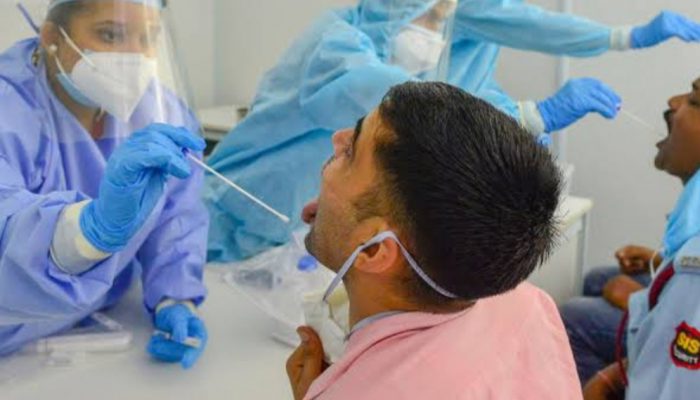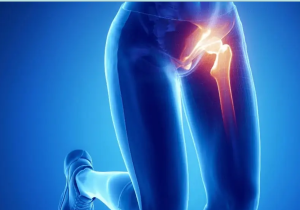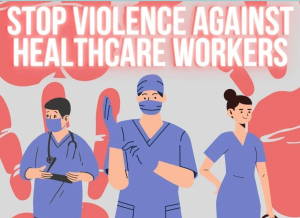This is a personal summary of the COVID situation (without going into nuances or details) with some references meant for non-specialists and some recommendations for various situations. They are based on ballpark figures, approximations and estimates and are therefore not written in stone and will change with time. Ordinarily these discussions are meant to be face to face with a specialist and tailored to specific situations in each patient, but these are extraordinary times.
If 100 patients get COVID-19 : 85 will settle with no treatment at all. 15 of these 100 will develop SpO2 (oxygen saturation) levels of 93 and below1 (usually between days 8 to 122) and should be hospitalized.
10 of these 15 will settle with nasal oxygen up to 6 litres /minute, steroids, prophylactic anticoagulants and occasionally Tocilizumab. Remdesivir may be given at this stage but it does not decrease deaths. Convalescent plasma has not been found to be beneficial3–7.
The other 5 will require critical care and escalation of respiratory support with non-invasive ventilation /CPAP or HFNC (High flow nasal cannula) oxygen. 3 out of 5 will settle down and be discharged. 2 will need to be intubated and invasively ventilated. 1 of these 2 will survive.
Even under ideal conditions 1 of 100 symptomatic covid patients may die8. If hospital beds are not available all 5 who get critically ill and perhaps half of those who become hypoxic will die – increasing deaths to about 10 in 100.
Asymptomatic patients in general do not get hypoxic or die. The infection fatality rate (including both symptomatic and asymptomatic patients) is estimated at 0.3% retrospectively looking at positive serology9,10.
PREHOSPITAL CARE
There is no proven treatment for non-hospitalized patients and in particular HCQS11–13, Azithromycin14, Doxycycline15, Vitamin C16, Vitamin D17, Zinc16 and Favipiravir18,19 do not work and is not recommended. Ivermectin is not recommended because of poor quality data3,6 and trials showing lack of efficacy20 .
Colchicine21 and inhaled Budesonide22,23 have some data as prehospital treatment, but their efficacy is still debated. If used Colchicine is given 0.5mg twice daily for 3 days ,then once daily up to 14 days (Colchicine cannot be used in kidney or liver disease and pregnancy). Budesonide has been used via inhaler 800mcg twice daily. There is a signal of reduced hospital admissions with these medications which need to be confirmed by more robust trials.
PREHOSPITAL CARE IN PATIENTS WHO SHOULD BE HOSPITALIZED
With the onset of hypoxia (defined as SpO2 <94) the patient should be in hospital but may not find a bed. In these extenuating circumstances it is reasonable to start treatment with Dexamethasone 6 mg (OR Methylprednisolone 32 mg OR Prednisolone 40 mg) once daily after breakfast for 10 days along with prophylactic anticoagulation (Either Rivaroxaban 10 mg once daily OR Apixaban 2.5 mg twice daily orally). The patient and their carers must be warned that a substantial proportion of such patients will deteriorate and likely die if not treated in hospital. Please note that starting steroids before the patient becomes hypoxic is likely to HARM the patient.
Dr Sumit Sengupta MD, MRCP (UK), CCST (UK) in Respiratory Medicine, FRCP(London)
- Guan W, Ni Z, Hu Y, et al. Clinical Characteristics of Coronavirus Disease 2019 in China. N Engl J Med. 2020;382(18):1708-1720. doi:10.1056/NEJMoa2002032
- Huang C, Wang Y, Li X, et al. Clinical features of patients infected with 2019 novel coronavirus in Wuhan, China. The Lancet. 2020;395(10223):497-506. doi:10.1016/S0140-6736(20)30183-5
- WHO. Therapeutics and COVID-19: living guideline. Published 2021. Accessed April 14, 2021. https://www.who.int/publications/i/item/WHO-2019-nCoV-therapeutics-2021.1
- NIH. Therapeutic Management. COVID-19 Treatment Guidelines. Published 2021. Accessed April 25, 2021. https://www.covid19treatmentguidelines.nih.gov/therapeutic-management/
- NICE. Overview | COVID-19 rapid guideline: managing COVID-19 | Guidance | NICE. Published 2021. Accessed April 18, 2021. https://www.nice.org.uk/guidance/NG191
- Adarsh Bhimraj A, Morgan RL, Hirsch Shumaker A, et al. Infectious Diseases Society of America Guidelines on the Treatment and Management of Patients with COVID-19.; 2021. Accessed April 14, 2021. www.idsociety.org/COVID19guidelines.
- Chalmers JD, Crichton ML, Goeminne PC, et al. Management of hospitalised adults with coronavirus disease 2019 (COVID-19): a European Respiratory Society living guideline. Eur Respir J. 2021;57(4). doi:10.1183/13993003.00048-2021
- Wilson N, Kvalsvig A, Barnard LT, Baker MG. Case-Fatality Risk Estimates for COVID-19 Calculated by Using a Lag Time for Fatality. Emerg Infect Dis J – CDC. 2020;Volume 26(Number 6). doi:10.3201/eid2606.200320
- Levin AT, Hanage WP, Owusu-Boaitey N, Cochran KB, Walsh SP, Meyerowitz-Katz G. Assessing the age specificity of infection fatality rates for COVID-19: systematic review, meta-analysis, and public policy implications. Eur J Epidemiol. 2020;35(12):1123-1138. doi:10.1007/s10654-020-00698-1
- Ioannidis JPA. Infection fatality rate of COVID-19 inferred from seroprevalence data. Bull World Health Organ. 2021;99(1):19-33F. doi:10.2471/BLT.20.265892
- Skipper CP, Pastick KA, Engen NW, et al. Hydroxychloroquine in Nonhospitalized Adults With Early COVID-19. Ann Intern Med. 2020;173(8):623-631. doi:10.7326/M20-4207
- Omrani AS, Pathan SA, Thomas SA, et al. Randomized double-blinded placebo-controlled trial of hydroxychloroquine with or without azithromycin for virologic cure of non-severe Covid-19. EClinicalMedicine. 2020;29. doi:10.1016/j.eclinm.2020.100645
- Mitjà O, Corbacho-Monné M, Ubals M, et al. Hydroxychloroquine for Early Treatment of Adults With Mild Coronavirus Disease 2019: A Randomized, Controlled Trial. Clin Infect Dis. 2020;(ciaa1009). doi:10.1093/cid/ciaa1009
- Butler CC, Dorward J, Yu L-M, et al. Azithromycin for community treatment of suspected COVID-19 in people at increased risk of an adverse clinical course in the UK (PRINCIPLE): a randomised, controlled, open-label, adaptive platform trial. The Lancet. 2021;397(10279):1063-1074. doi:10.1016/S0140-6736(21)00461-X
- Study finds azithromycin and doxycycline ineffective for Covid-19. Accessed April 25, 2021. https://www.clinicaltrialsarena.com/news/uk-study-azithromycin-doxycycline/
- Thomas S, Patel D, Bittel B, et al. Effect of High-Dose Zinc and Ascorbic Acid Supplementation vs Usual Care on Symptom Length and Reduction Among Ambulatory Patients With SARS-CoV-2 Infection: The COVID A to Z Randomized Clinical Trial. JAMA Netw Open. 2021;4(2):e210369. doi:10.1001/jamanetworkopen.2021.0369
- Murai IH, Fernandes AL, Sales LP, et al. Effect of a Single High Dose of Vitamin D3 on Hospital Length of Stay in Patients With Moderate to Severe COVID-19: A Randomized Clinical Trial. JAMA. 2021;325(11):1053-1060. doi:10.1001/jama.2020.26848
- Dabbous HM, El-Sayed MH, El Assal G, et al. Safety and efficacy of favipiravir versus hydroxychloroquine in management of COVID-19: A randomised controlled trial. Sci Rep. 2021;11(1):7282. doi:10.1038/s41598-021-85227-0
- Ueda M, Tanimoto T, Murayama A, Ozaki A, Kami M. Japan’s Drug Regulation During the COVID-19 Pandemic: Lessons From a Case Study of Favipiravir. Clin Pharmacol Ther. Published online April 21, 2021. doi:10.1002/cpt.2251
- López-Medina E, López P, Hurtado IC, et al. Effect of Ivermectin on Time to Resolution of Symptoms Among Adults With Mild COVID-19: A Randomized Clinical Trial. JAMA. 2021;325(14):1426-1435. doi:10.1001/jama.2021.3071
- Tardif J-C, Bouabdallaoui N, L’Allier PL, et al. Efficacy of Colchicine in Non-Hospitalized Patients with COVID-19. medRxiv. Published online January 27, 2021:2021.01.26.21250494. doi:10.1101/2021.01.26.21250494
- Group PC, Yu L-M, Bafadhel M, et al. Inhaled budesonide for COVID-19 in people at higher risk of adverse outcomes in the community: interim analyses from the PRINCIPLE trial. medRxiv. Published online April 12, 2021:2021.04.10.21254672. doi:10.1101/2021.04.10.21254672
- Ramakrishnan S, Nicolau DV, Langford B, et al. Inhaled budesonide in the treatment of early COVID-19 (STOIC): a phase 2, open-label, randomised controlled trial. Lancet Respir Med. 2021;0(0). doi:10.1016/S2213-2600(21)00160-0














Thank you sir for guiding us(junior doctors).
From which day MDI BUDESONIDE should start?